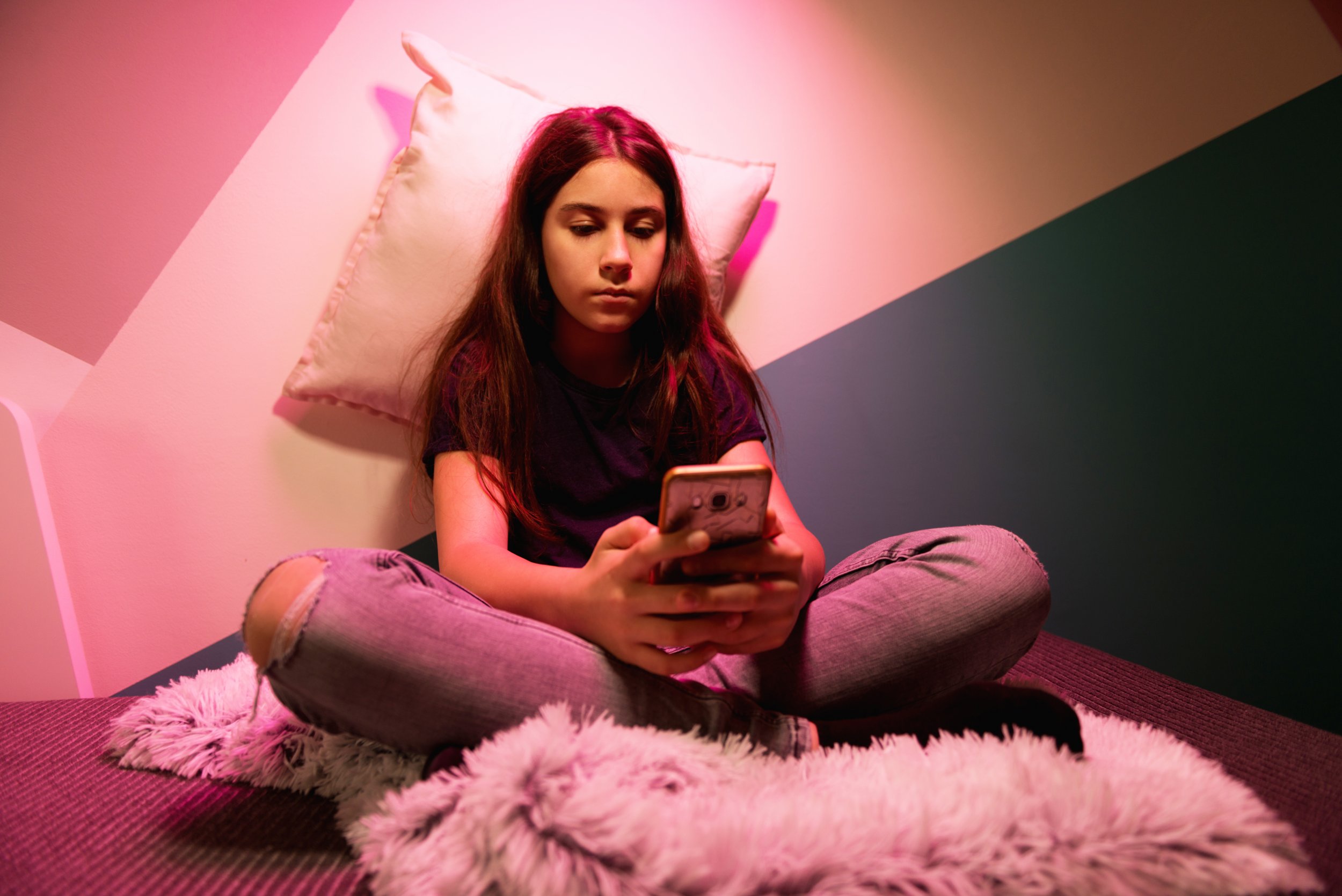
Reducing teenagers' screen time for a week could ease sleep problems linked to electronic devices, according to a study.
Devices like smartphones, tablets and computers let off a blue light that affects our 24-hour body clock, known as the circadian rhythm, and how our the brain decides when we need to sleep. Past studies have shown strong links between using such devices and how long and well teenagers sleep.
The authors of the new study wanted to determine if teenagers would get better sleep if they ditched the technology before bed. A group of 55 Dutch adolescents between 12 and 17 were categorized as frequent screen users, at four hours a day, and infrequent, at one hour a day.
Over a period of five weeks, the frequent users were asked to do one of three things, separated by a one-week washout period. One week they were asked to continue their screen use as usual; in another week to wear blue light–blocking glasses; and then to not use screens at all. The infrequent users acted as a control group for the study. It was not clear from the study abstract what time of the day the participants started wearing blue light–blocking glasses.
The participants kept sleep diaries, wore devices to measure their rest and activity cycles, and provided samples of their saliva on the final day of each week so the scientists could measure their levels of the sleep hormone melatonin.
Teenagers who used devices frequently slept 30 minutes later on average and were more likely to wake up at night, compared with low-level users.
At the end of the study, the teenagers who often used screens had sleep of a similar quality to the sleep of those who didn't. They also woke up 20 minutes earlier on average and were less likely to be suffering from the symptoms of a lack of sleep.
The authors said they believe this may be because the blue light was not given the chance to disturb the production of melatonin, which regulates sleep. Next, the researchers want to investigate whether the effects could be long-lasting and replicated in adults.
The study is being presented at the European Society of Endocrinology's annual meeting, ECE 2019, which runs May 18 through 21, and therefore it hasn't been published in a peer-reviewed journal.
Study co-author Dirk Jan Stenvers of the Department of Endocrinology and Metabolism at the Amsterdam UMC said: "Adolescents increasingly spend more time on devices with screens, and sleep complaints are frequent in this age group. Here, we show very simply that these sleep complaints can be easily reversed by minimizing evening screen use or exposure to blue light. Based on our data, it is likely that adolescent sleep complaints and delayed sleep onset are at least partly mediated by blue light from screens."
In the long term, Stenvers said, poor sleep is linked with an increased risk of developing conditions such as obesity, diabetes and heart disease. "If we can introduce simple measures now to tackle this issue, we can avoid greater health problems in years to come," he said.
Iroise Dumontheil, a reader in cognitive neuroscience at Birkbeck, University of London, and a researcher for the Study of Cognition, Adolescence and Mobile Phones was not involved in the study but said that while it has not been peer-reviewed, the findings are promising.
"The results suggest that wearing blue light–blocking glasses may reduce the impact of frequent screen use on adolescents' sleep," she said.
"Particularly interesting is that wearing these glasses had a similar effect to avoiding screen use completely, both allowing adolescents to fall asleep and wake up earlier. One caveat is that the study did not include an active control condition [for example, wearing another type of glasses], therefore adolescents' expectations may have contributed to the results," Dumontheil said.
This article was updated to correct the spelling of Dirk Jan Stenvers' name.
Uncommon Knowledge
Newsweek is committed to challenging conventional wisdom and finding connections in the search for common ground.
Newsweek is committed to challenging conventional wisdom and finding connections in the search for common ground.
About the writer
Kashmira Gander is Deputy Science Editor at Newsweek. Her interests include health, gender, LGBTQIA+ issues, human rights, subcultures, music, and lifestyle. Her ... Read more
To read how Newsweek uses AI as a newsroom tool, Click here.






